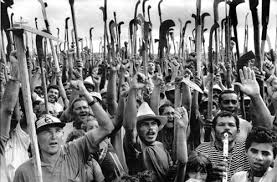The New York Observer
reports [click
here if the link is broken] that "President George W. Bush had specifically asked the [New York Times] not to run" a story "revealing that the National Security Agency had been wiretapping Americans without using warrants" 10 days before it was ultimately published on December 16, 2005.
"The President had made the request in person in an Oval Office meeting with publisher Arthur O. Sulzberger Jr., executive editor Bill Keller and Washington bureau chief Phil Taubman, according to Times sources familiar with the meeting."
The story first surfaced 14 months earlier - before the 2004 election, the Observer article notes - but was quashed by the Times at the request of the White House, which claimed it "could jeopardize continuing investigations."
The Observer piece strongly implies that the article would have likely never appeared at all were it not for the persistence of the journalist who spearheaded the story, James Risen, and the impending publication of his book which would have broken the news anyway.
The story "was shelved and regarded as dead, according to a Times source."
Inquiries into why the Times saw fit to acquiesce to the Administration for over a year have been rebuffed. "'Someone on high told reporters not to talk about it,' a Washington bureau source said."


